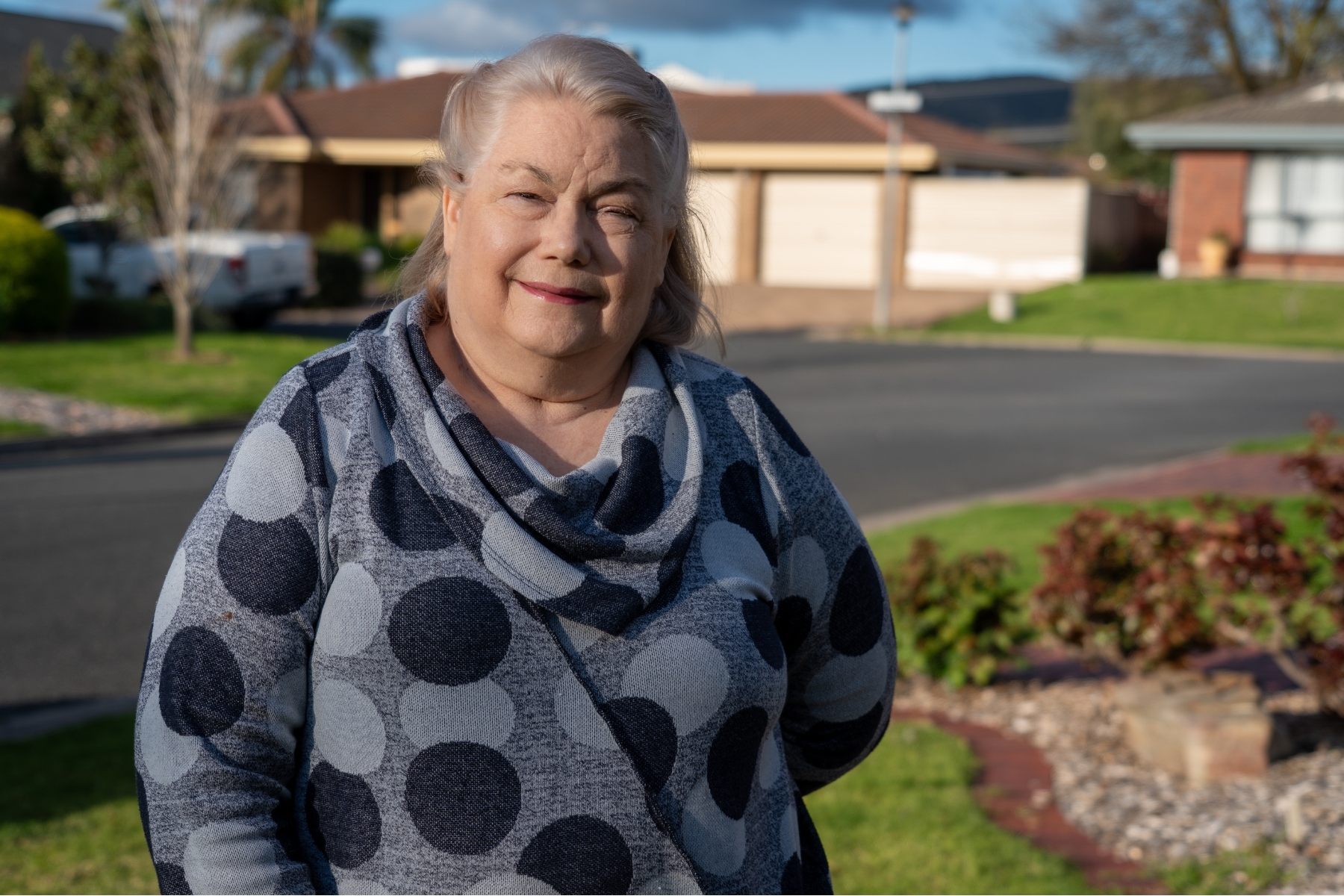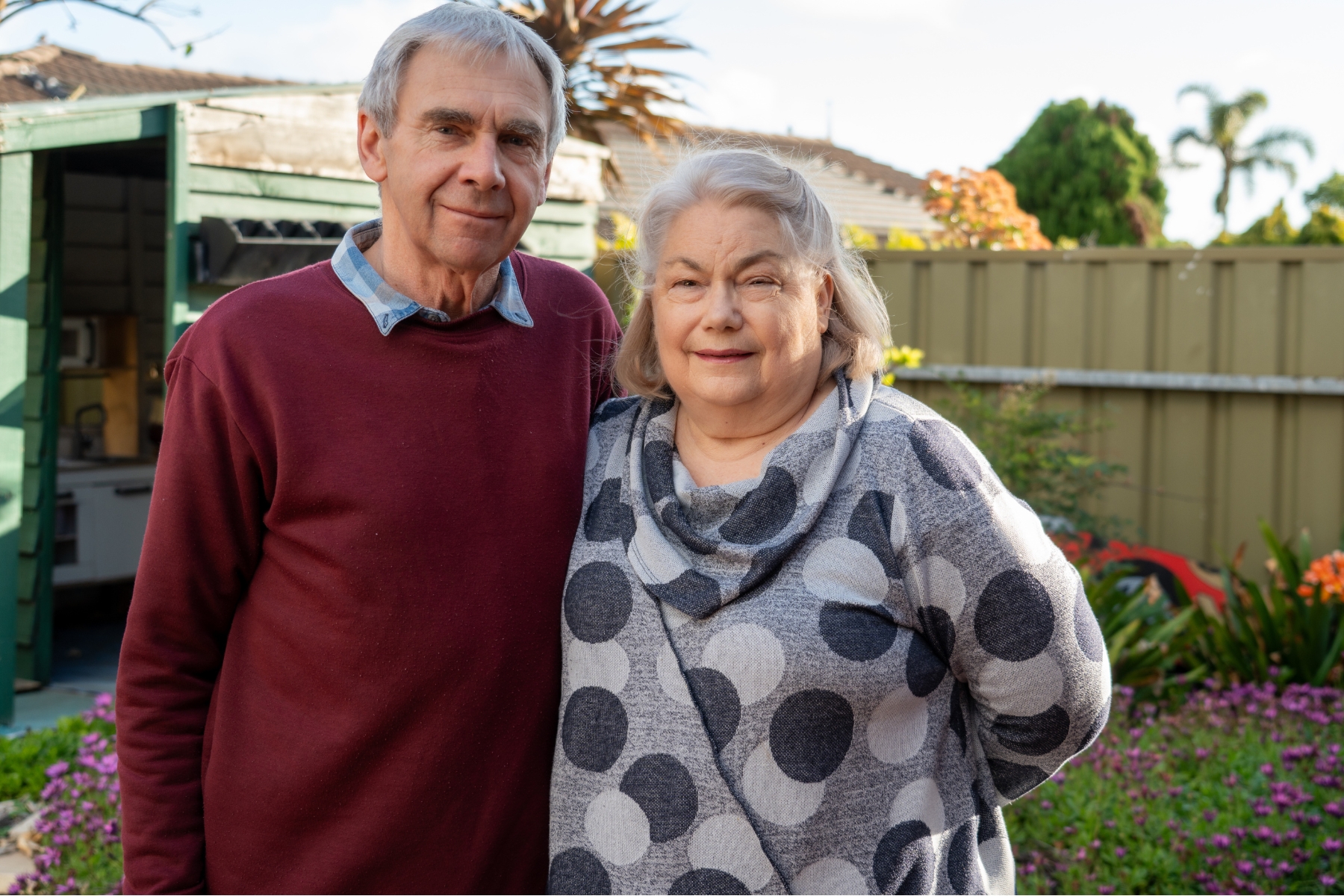‘Everybody can do it’: Caring for 87 babies in 16 years
Leonie Schiller has had her heart broken 87 times, and she’d recommend it to anyone. This Carer Week, InDaily takes you through Leonie’s 16-year journey and the misconceptions she’s faced along the way.

Since becoming a short-term carer in 2009, Leonie has cared for 87 babies. For all 87, she’s shed tears.
“You do break your heart when you have to say goodbye to them, but you break your heart knowing that you have had a huge impact on that child,” she says.
Leonie and her husband are among about 1020 foster care households in SA with the number of kinship and foster households growing by about 40 per cent since 2018-19.
“The factors causing children to be in care have increased dramatically, and they’re much more serious than it was 16 years ago,” Leonie says.
As of July 31 this year, Department of Child Protection figures showed there are about 4890 children and young people in care in South Australia.
When Leonie and her late husband started caring, they took one child at a time but after a few years, they would take three or four children at once.
“I was inundated with calls,” she says.
“In fact, my then-husband and I would often take separate calls, and we’d accept a baby, not knowing that the other one was getting a call as well, which is why we ended up with multiples, because there were so many babies.
“Once my first husband died, I regularly had three and four children right through until I hit 70, really.”

Leonie’s first foster child was only months old when she left Leonie and is now a teenager and a constant in her life.
You might like
“She was at my first husband’s funeral, she was at my 60th birthday, at my 70th birthday, at my marriage to my new husband, she’s made speeches for me, she’s just a part of my life,” she says.
Leonie, now 71, is married to husband Rod, and the two are affectionately known as Oma and Grumps – a moniker she chose to avoid interfering with the roles biological relatives may play in the children’s lives.
Another child who had been cared for by Leonie and her first husband attended her second wedding, making her day even more special.
“His parents gave him a choice, because he could have been at a state soccer training clinic, and he said, ‘No, I’ll go see Oma get married’,” Leonie says.
That boy was Leonie’s longest placement, lasting two and a half years. Though Leonie and her late husband Ron wanted him to stay long-term, their age was against them.
“It was only a few months after that that my husband died absolutely suddenly, and I remember being driven back from his workplace to home on the day of his death, and all I could think of was, ‘Ron, you’ve just proved them right’.”
Leonie said a misconception of caring is that you can adopt the children, but that’s never stopped her from giving each child her whole heart.
“If you can’t treat them as your own and if you can’t take them in as your own children, knowing at the back of your mind that you have no rights, you can’t love them the same way,” she said.
“They may never remember you, but you know that you’ve changed their life. You’ve brought them back from the sad place that they were in when they were handed to you on your front doorstep, and when they leave you, you know that you are saying goodbye to a child that is nourished and loved and happy and safe. You’ve made a huge difference.”

With so many children coming through her home, Leonie said she’s accumulated a virtual Baby Bunting in her shed: a steady supply of equipment and clothes.
But these days, she’s observed more carers are needing a dual income as the cost-of-living crisis bites.
The former midwife said that, unlike new parents, when you take in a foster child you don’t have a baby shower, receive a freezer full of meals or have friends offer to babysit.
“You are handed this child, whether it be a newborn or a 10 or a 12-year-old, with a plastic bag, if you’re lucky, full of goodies, and then you’ve got to provide for that child,” she says.
“We do get an allowance. We don’t get paid. I think there’s a misconception there, people think we get paid money. We don’t.
“We are given an allowance and personally I’m okay with that… you build up a supply over the years, but new carers don’t have that luxury.”
Stay informed, daily
Beyond the cost of raising a child, the need for respite is another element that’s now widely understood as being a big help to sustain carers.
“One of the misconceptions is that you only care for them eight hours a day, and then they go into this magical place,” she said.
“People don’t all realise that these children are our children 24/7 so respite carers give us the opportunity to have me time.”
From January to May 2025, more than 1200 referrals were made to the Department of Child Protection for respite care.
About 80 per cent were able to be filled.
Respite care can be as few as four to eight hours or an overnight stay.
Child Protection Minister Katrine Hildyard says respite care can be “vital” and one of many ways to care that can suit different lifestyles.
“We know the crucial role long-term carers have in providing stability, nurture and certainty in a child’s life,” the minister says.
“Short-term carers are really important too, providing care to children in flexible ways for a few hours on a weekend, during the school holidays or for a few months while options are explored for a long-term carer.”
Leonie says she cringes whenever anyone tells her “that’s amazing, but I could never do that”.
“Everybody can do it; all you have to be able to do is open yourselves up to loving a child, because that’s what they need,” she says.
“You can (provide) respite for one family and just give that family a break, let them go out for a movie night or for dinner, or let them go out and get a hairdo or go to medical appointments,” Leonie says.
“That’s all you have to do, and you can do it in their home, you can sit there and play with the child or the baby and give mum a break.”
Minister Hildyard encourages anyone who’s thought about providing foster care to attend an information session to see how they could help change a child’s life.
“I am continually moved by the dedication, love and kindness carers, such as Leonie, bring to children’s lives,” she says.
“Their generosity and commitment is extraordinary and I am really grateful to Leonie and the many other big-hearted carers.”
Today, Leonie is in touch with about 30 of the 87 children who have been through her care.
“I think, as a carer, that’s really all you can hope for: the fact that they know you.
“They know that you started their journey … They know that if you want a baby (to visit), you just go to Oma’s house, because that’s where they all come from, which I think is really cute.”









